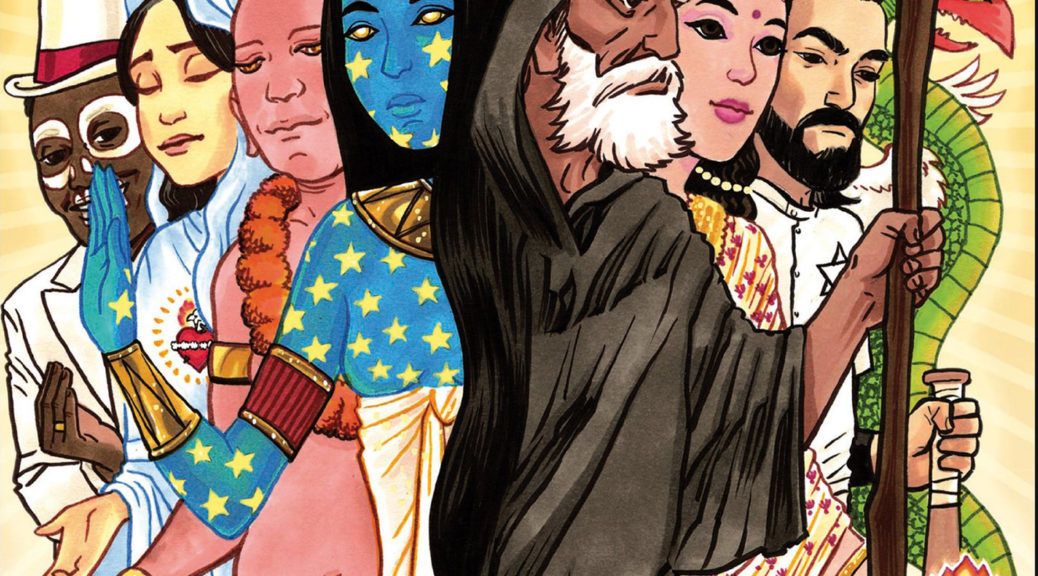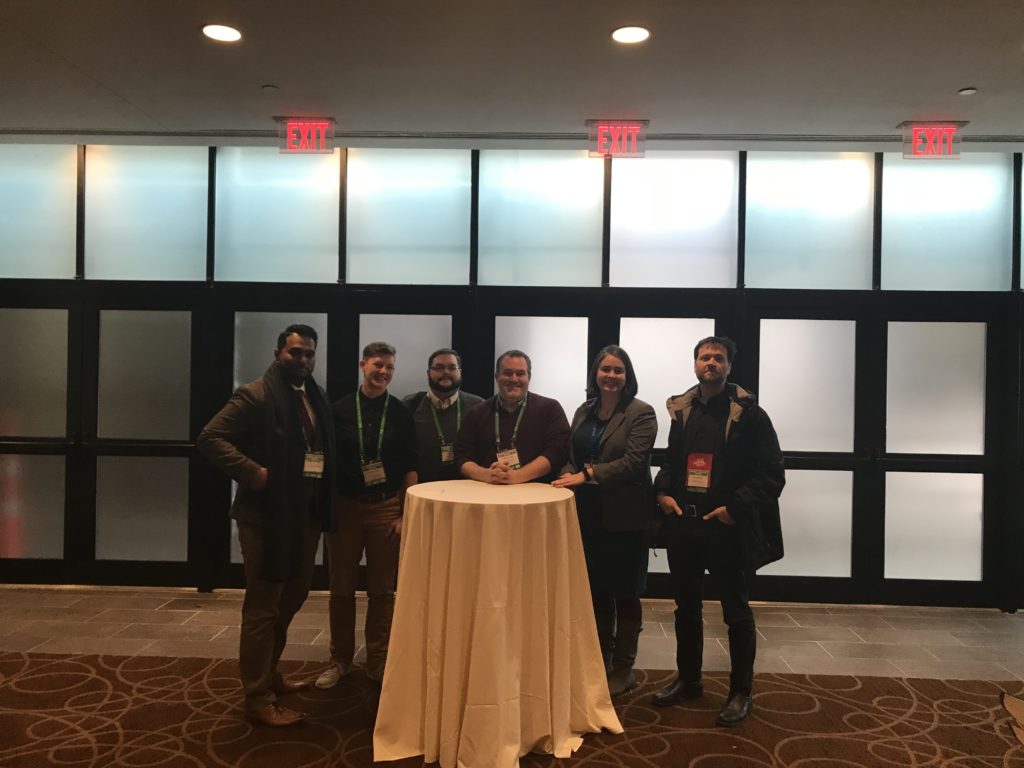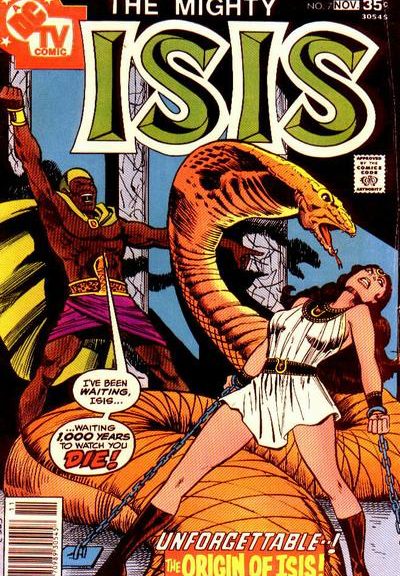As she did with its opening day, special correspondent Samantha Langsdale continued to report from the 2017 International Comic-Con San Diego (aka the San Diego Comic-Con or SDCC).
In addition to her own presentation at the Comic Arts Conference (CAC), Samantha relayed intriguing notes on another presenter, Kerry Fine, and her analysis of Arigon Starr’s Super Indian:
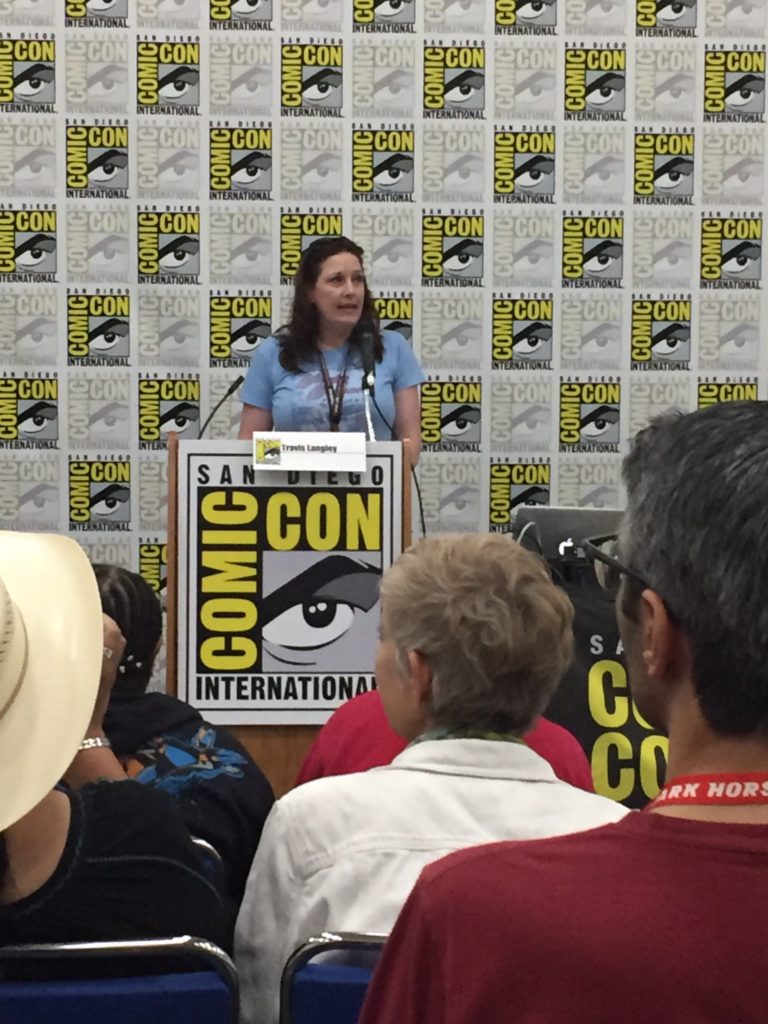
 Ok, annoyingly, Travis Langley’s name tag got left on the podium, but this is Kerry Fine from Arizona State University, She’s discussing Arigon Starr’s comic Super Indian, which, through allusions, humor, and hyperbole, challenges normative assumptions about Native American spirituality and culture.
Ok, annoyingly, Travis Langley’s name tag got left on the podium, but this is Kerry Fine from Arizona State University, She’s discussing Arigon Starr’s comic Super Indian, which, through allusions, humor, and hyperbole, challenges normative assumptions about Native American spirituality and culture.
It challenges assumptions about native being “magical” and, instead, shows the normal, everyday experiences of Native Americans whilst always being critical of colonial representations of natives.
In fact, Starr herself was invited up as a special guest.
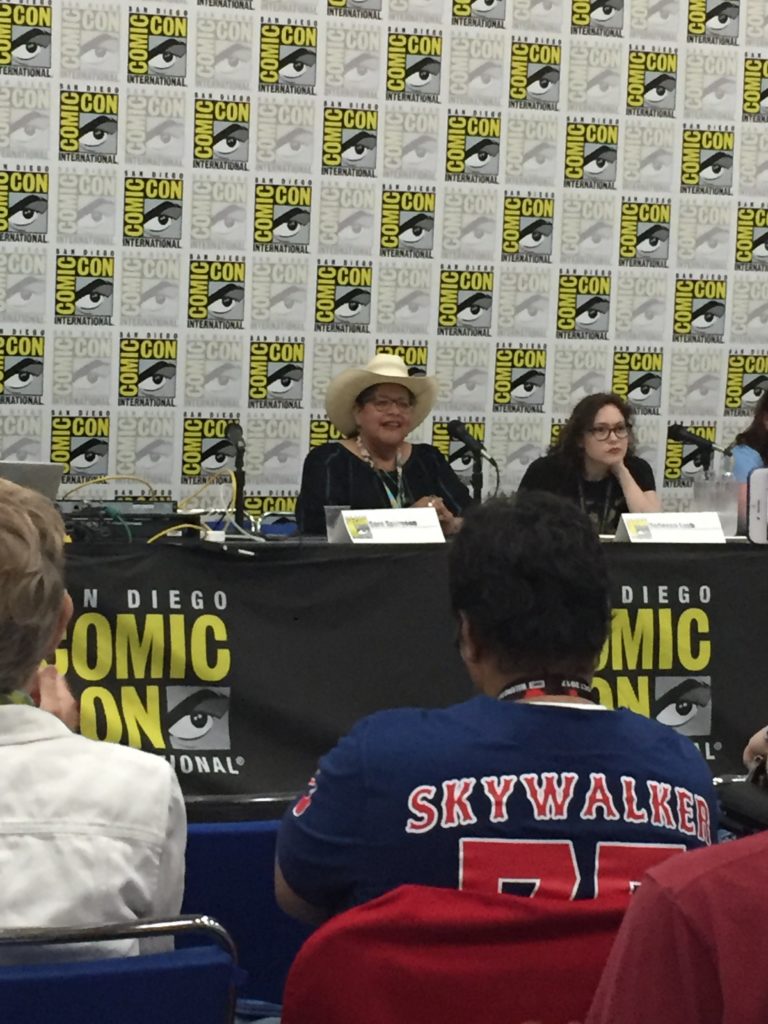
When asked about any relevant buzz concerning the Eisner Awards, Samantha reported
haven’t heard much chat to that effect. I’ve been mildly annoyed to find nothing about Islam. We’re going back to the Small Press section today [Sunday] to rummage around, so I’ll see if I can find some indie. But overwhelmingly nothing and no panels!
She noted some Ms. Marvel cosplay but scarce else notably Islamic. Christianity, on the other hand, was well represented:
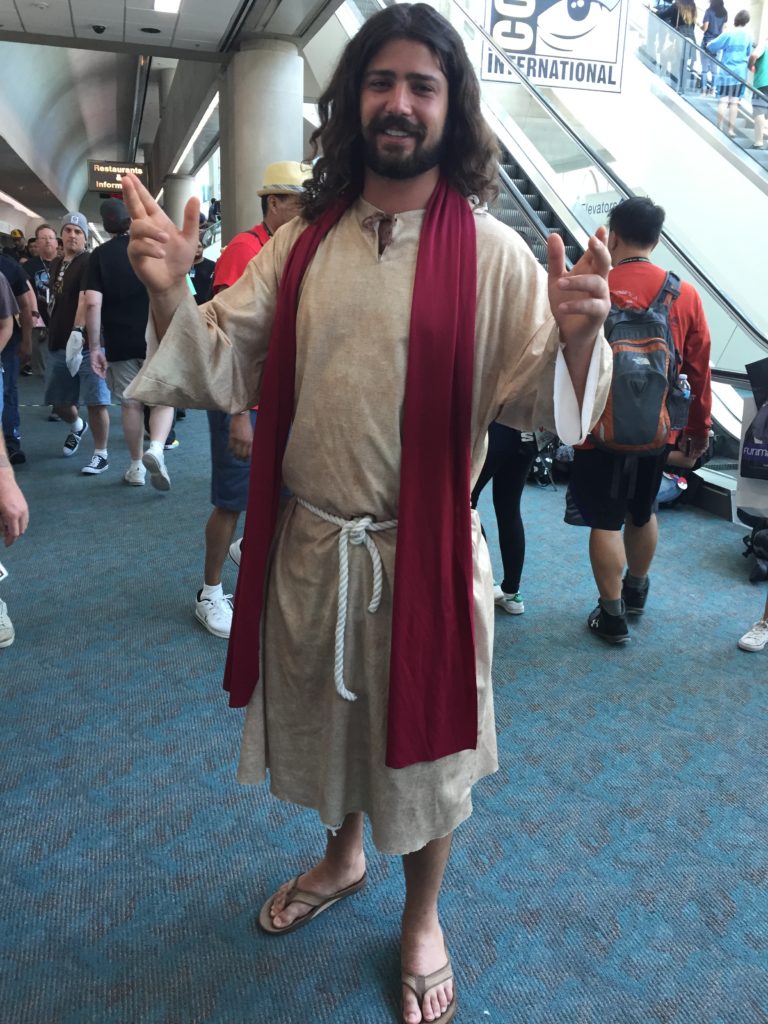 Samantha also noted that the IDW panel mentioned “plans to publish a comic about Antar” and that, along with the cosplay, Ms. Marvel was a frequently mentioned character, “a fav on almost every panel I went to about diversity/women.” (She was unable to attend the “Spiritual Themes in Comics” panel hosted by the Christian Comic Arts Society, however, where panelists ” examine[d] how spiritual themes influence the entertainment industry and how the reality of spiritual beliefs affects the culture’s perception of spiritual influences. )
Samantha also noted that the IDW panel mentioned “plans to publish a comic about Antar” and that, along with the cosplay, Ms. Marvel was a frequently mentioned character, “a fav on almost every panel I went to about diversity/women.” (She was unable to attend the “Spiritual Themes in Comics” panel hosted by the Christian Comic Arts Society, however, where panelists ” examine[d] how spiritual themes influence the entertainment industry and how the reality of spiritual beliefs affects the culture’s perception of spiritual influences. )
Sacred and Sequential once again wants to thank Samantha for her time and notes — as always, so much to see at SDCC!

